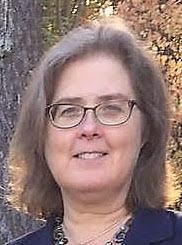The Future of Nursing Care for Advanced Cancer Patients
Q: You have gained remarkable insights into the American nursing profession by performing and publishing survey research for many years. What do you envision as the major roles for nurses in caring for patients with advanced cancer?
A: As our nation grapples with the aging of our population, the care of people with cancer will cost an estimated $158 billion annually by 2020. That is a lot of health care. Some who hear the words “advanced cancer” think about living out their final days far from healthcare settings, perhaps at the beach sipping tropical beverages. Others head for cancer centers and death-defying new therapies: different “cocktails” of personalized plans, targeted therapies, clinical trials. Still others have few options—our national shame of rationing access by income and insurance status.
Nurses, especially oncology trained specialist nurses, have key roles to play for any of these patients. The Oncology Nursing Society has set standards for core competencies for several nurse roles: general care, patient navigation, research, advanced practice, leadership. Oncology nurses may lead infusion and intensive care units and cancer centers. In a community, they work in widely varied roles from ambulatory care to nursing homes, hospices, and home health agencies.
The role of the nurse in our society has its roots hundreds of years ago in the religious orders of Christian, Islamic and Buddhist faiths where the sick and dying were comforted in convents and monasteries around the world. The profession advanced in the 19th century from the battlefield in Crimea to the hospital bedsides of the 21st century. Specialized oncology nursing and advanced practice nursing were born in the 1970s as advanced specialized training, board certification and licensure evolved, much as they have in medicine. The National Academy of Medicine, in two major reports on the Future of Nursing in 2010 and 2015, recommended that all states allow nurses to practice to the full extent of their education and training, and encouraged the profession to seek advanced education at all levels so as to be full participants in interprofessional clinical teams. The meaning of the term “full extent of education and training” is evolving rapidly. The concepts of interdisciplinary and interprofessional teams have been visible in oncology for many years. Nurses are working in every aspect of advanced cancer care. It is unclear what the limits may be on their work and practice—or what price they will be willing to pay for that advanced skill, education and labor.
Perhaps the question we should be asking is: what is the role for physicians in the future care of patients with advanced cancer? In a future of team-based care in academic centers, will physician oncologists oversee care for the sick and dying or mostly focus their time on administration and research? Will palliative and hospice care be overseen by physician and nurse specialists or by community based primary care physicians and advanced practice nurses? How will care be organized, whom will we treat and for how long, and what will be the cost? These are issues we must understand to plan the future of the health professions in the care of advanced care patients.
Copyright: This is an open-access article distributed under the terms of the Creative Commons Attribution License, which permits unrestricted use, distribution, and reproduction in any medium, provided the original author and source are credited.


 Karen Donelan, ScD, EdM, Senior Scientist in Health Policy, Mongan Institute Health Policy Center, Massachusetts General Hospital; Associate Professor of Medicine, Harvard Medical School Boston, MA 02114; kdonelan@mgh.harvard.edu
Karen Donelan, ScD, EdM, Senior Scientist in Health Policy, Mongan Institute Health Policy Center, Massachusetts General Hospital; Associate Professor of Medicine, Harvard Medical School Boston, MA 02114; kdonelan@mgh.harvard.edu